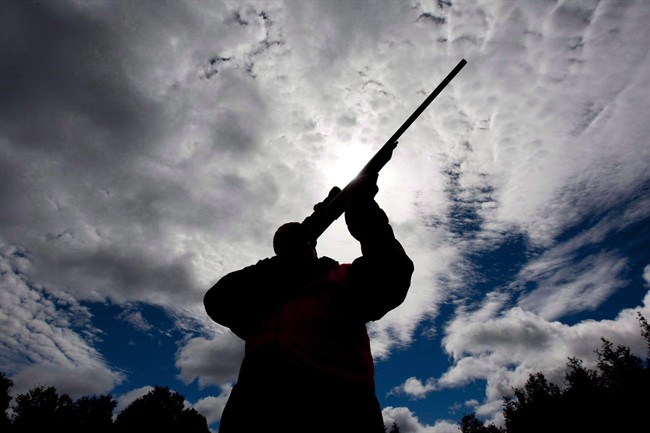Conservative MP Shannon Stubbs wants the government to launch a study at committee to look at rural crime.

In a press conference Wednesday, Stubbs announced her private member’s motion which will call for a “comprehensive and current” analysis of crime rates in rural communities as well as whether law enforcement agencies have the resources they need to combat what she says is a growing problem.
READ MORE: Reality Check: What do the changes to Canadian gun laws mean for you?
“Rural crime is the Number One issue I hear about from constituents in Lakelands,” Stubbs told reporters.
WATCH BELOW: Goodale says their common sense firearms legislation has been lauded

The motion by Stubbs comes one week after the government announced plans to tighten background checks on gun owners and require the mandatory vetting of gun permits by vendors before a sale.
That legislation will also require businesses to keep records of their sales but that will not include private sellers.

Get daily National news
Public Safety Minister Ralph Goodale billed the move as an effort to tackle gun violence in Canada but the opposition says the changes do nothing but place additional regulations on legal gun owners while doing nothing to address the concerns of rural Canadians.
In criticism of the bill since it was announced, the Conservatives have focused their questions on the lack of provisions in it to address crimes like break-ins in rural communities.
COMMENTARY: ‘Clearing the plains’ continues with the acquittal of Gerald Stanley
Stubbs said her motion would be a starting point aimed at finding measures to specifically help rural communities tackle crime.
“This motion is a first step to making concrete recommendations to improving rural crime rates,” she said.
Given the Liberals control the majority of seats in the House of Commons, Stubbs’ motion is destined for defeat but it comes in the wake of a broader discussion around gun control and rural crime in Canada.
WATCH BELOW: Gerald Stanley’s gun charges case adjourned until April

Last month, Saskatchewan farmer Gerald Stanley was acquitted by an all-white jury of second-degree murder in the shooting death of Colten Boushie, a young Cree man.
Boushie was shot in the back of the head while sitting in an SUV on property owned by Stanley in August 2016.
READ MORE: Boushie’s family says Stanley ‘exploiting’ man’s death with publishing pitch
Stanley gave evidence during his trial that his gun went off accidentally after he fired several warning shots to scare off Boushie and several others with him. Stanley said he thought Boushie and the others were trying to steal an all-terrain vehicle.
The young people testified they had a flat tire and were looking for help.
READ MORE: Self-defence arguments surface at RCMP town halls to address rural property crime
Racial tension plagued the case and the acquittal of Stanley prompted protests across the country; it also put a spotlight on police response times and the challenges farmers face in dealing with crime in rural areas.
In March, RCMP in Saskatchewan announced a series of town halls on rural crime throughout the province.
The goal of those was to hear concerns from the public, and questions about the legal limits of self-defence and property rights dominated those sessions.








Comments
Comments closed.
Due to the sensitive and/or legal subject matter of some of the content on globalnews.ca, we reserve the ability to disable comments from time to time.
Please see our Commenting Policy for more.